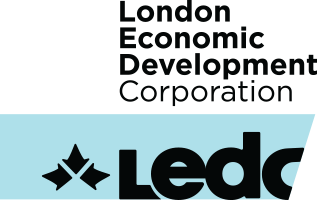Future Fortunes Academy is equipping London youth with real-world financial literacy tools and building the region’s talent pipeline in the process.
Something is brewing in London, and this time it’s not craft beer or coffee. It’s young people learning how to think like entrepreneurs, talk like investors, and build their futures. Future Fortunes Academy, a youth-focused mentorship and education program, is on a mission to make financial literacy accessible for students aged 8 to 14.
Launched in 2022 by siblings Victoria Younan and Nelson Bergsma, the company was inspired by their own upbringing in a low-income household. One sibling leaned into saving; the other focused on building skills and taking risks. But both recognized a bigger problem: kids simply aren’t being taught how money works.
“Future Fortunes Academy was created after we saw a clear gap in fun, easy-to-understand and culturally relevant financial education resources,” says Bergsma, the company’s chief sales officer. “Many teens and even adults still don’t understand how credit cards, taxes or debt work. We wanted to build something that could change that and give Canadian children lifelong financial confidence.”
Headquartered in London, the company delivers highly interactive financial education products, weekly money conversation starters, long form educational content via their newsletter as well as real life tips and ideas for fostering financial knowledge and conversations on their social platforms. Their goal: reach one million kids across North America by 2030. So far, they’re well on their way.
“Over the past three years, we’ve grown across North America, but recently we’ve focused on deepening our local presence,” says Bergsma. “It’s rewarding to connect with families and organizations right here in London. We’ve been in talks with several local groups to integrate our resources into their programs, and we’re excited to see that grow.”
As of 2024, more than 12,000 children in classrooms have received financial education through Future Fortunes, and another 6,000 have used their learning tools at home. More than 4,500 families have joined the movement to raise financially literate kids.
“From public and private schools to homeschoolers, nonprofits and wealth advisers. Once people see what we’re doing, they want to get involved,” says Bergsma. “We recently partnered with SpectrumED to distribute our resources to public schools across Canada, which confirms there’s a real and growing need for early financial education.”
Future Fortunes’ core products break down complex topics into colourful, kid-friendly formats. Their 52-card flash deck introduces foundational concepts like saving, budgeting and investing, with conversation prompts that make it easy for families to talk about money at home.
For parents, teachers or community leaders looking to bring financial literacy into their classrooms, getting started with Future Fortunes Academy is easy. Thier full range of products, including the best-selling Financial Literacy Flashcards, Financial Education Workbook, Memory Game and more, is available for purchase directly through their website.
Teachers and homeschoolers can explore the For Teachers section, which includes a free downloadable sample workbook, a guide to implementing lessons with minimal prep time and a breakdown of how products align with key curriculum areas. For bulk orders or custom packages, educators can reach out to the team directly to discuss group pricing options.
Most physical products range from $15 to $50 CAD, with digital versions available at a lower cost, starting at $5, making the products an accessible choice for families and schools alike. Financial Conversation Starters can visit their website, or follow the organization on Instagram or Facebook for practical tips and updates.
Parents, educators and even financial professionals are turning to these tools to fill a gap most schools still leave untouched. And it’s not just about teaching kids to save, it’s about helping them connect money to opportunity, risk, community and identity.
“The feedback has been incredible,” says Bergsma. “Parents tell us their kids are excited to talk about money once the knowledge gap has been filled. We receive videos of families using the products, and messages from teachers who say our visuals and activities make finances easy to understand and fun to teach.”
As London’s population grows and diversifies, Future Fortunes is stepping in where traditional systems often fall short, especially in households where financial conversations are limited or nonexistent. By designing affordable, downloadable resources and offering free weekly conversation starters, the Academy is making its content accessible to a wide audience.
This approach also benefits the region’s economic future. Financial literacy is foundational to career readiness and entrepreneurship, both pillars of London’s economic development strategy. Future Fortunes helps students develop skills they’ll need in any career, from skilled trades to start-ups to finance.
“London is full of talent and innovative leaders,” says Bergsma. “Whether kids become entrepreneurs, developers, tradespeople or professionals, financial literacy helps them make better decisions and reach their goals. That’s good for them and for the city.”
The effects are already showing. Some students are leading presentations, buying their first stocks, or even starting small businesses. The company projects it will reach 50,000 children by 2025 and grow by 82 percent annually to hit one million by the end of the decade.
As the economy evolves, financial understanding is no longer optional — it’s essential. Weekly conversation starters help families explore topics like credit, investing and character development together, setting kids up for long-term success.
“We can’t do this alone,” says Bergsma. “Schools can adopt our resources. Businesses can sponsor local programs. Community groups can help us reach families who need support. If you believe in the power of children’s financial education, we’d love to talk.”
As London looks ahead, it will need more than infrastructure. It will need confident thinkers, creative problem-solvers and financially savvy leaders, and thanks to Future Fortunes Academy, some of them are already getting started.


